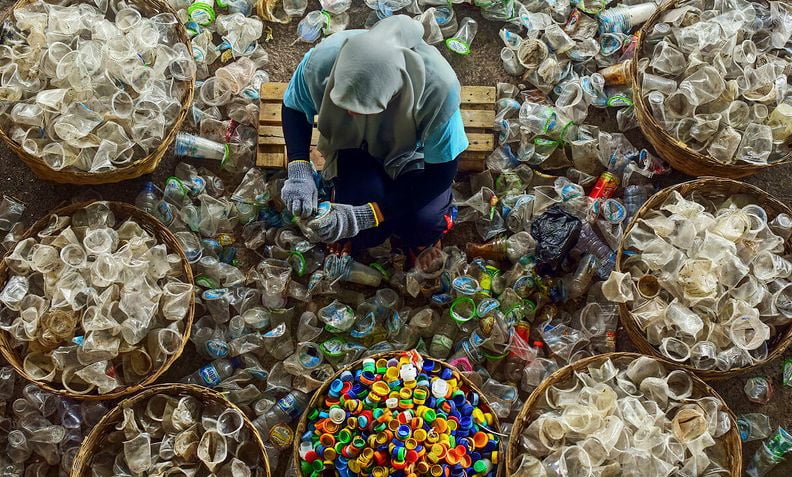On August 19, Indonesia's Finance Ministry has abandoned plans to introduce an excise tax on plastic products from 2025, which was initially aimed at curbing the country's severe plastic waste problem. The tax was first introduced in 2016 and was intended to apply to single-use plastic products such as bottles, bags and packaging. The goal is to reduce plastic consumption and environmental damage, especially in the food and beverage industry, by imposing a tax of Rp 200 per plastic bottle. However, the plan faces strong opposition from industry groups such as the Association of Aromatics, Olefins and Plastics Industries (Inaplas). These groups argue that the tax will harm Indonesia's manufacturing sector, especially companies that rely on plastic packaging.

Fajar Budiono, Secretary-General of Inaplas, emphasized that the excise tax would reduce domestic demand for plastic products and could increase imports of untaxed foreign goods. He also noted that plastics remained essential due to their durability and cost-effectiveness and that there were currently no affordable alternatives. Critics further warned that the tax would have a disproportionate impact on consumers, especially in areas with unsafe tap water, leading to higher prices for basic bottled water. Ultimately, concerns about the economic impact on the industry and consumers led to the abandonment of the tax proposal. Indonesia is the world's second largest producer of plastic waste. According to a study published in the journal Science, Indonesians use about 187.2 million tons of plastic per year. Meanwhile, Greening Indonesia estimates the use of plastic bags by modern and traditional retailers in Indonesia at 700 bags per person per year, or 178.5 billion plastic bags.In February 2016, the Indonesian government introduced a plastic bag fee (initiated by the Indonesian Ministry of Environment and Forestry) as a (six-month) trial in 22 cities in the archipelago. There is a minimum charge of Rp 200 per plastic bag. This measure has been made mandatory for all retailers such as supermarkets and vendors. The tax on plastic products has been in progress since 2016, but specific measures were not taken until 2022 when the government included tax targets in the 2023 budget. However, these measures have yet to be implemented as the government has yet to issue any implementing regulations specifying which products are to be taxed. Delayed by 1 year! Germany to introduce another “plastic tax” in 2025
In January 2024, the German government announced that it would delay the implementation of the “plastic tax” for one year, until January 1, 2025, stating that the move was “in order to buy more time to develop an effective solution with as little bureaucracy as possible”.

